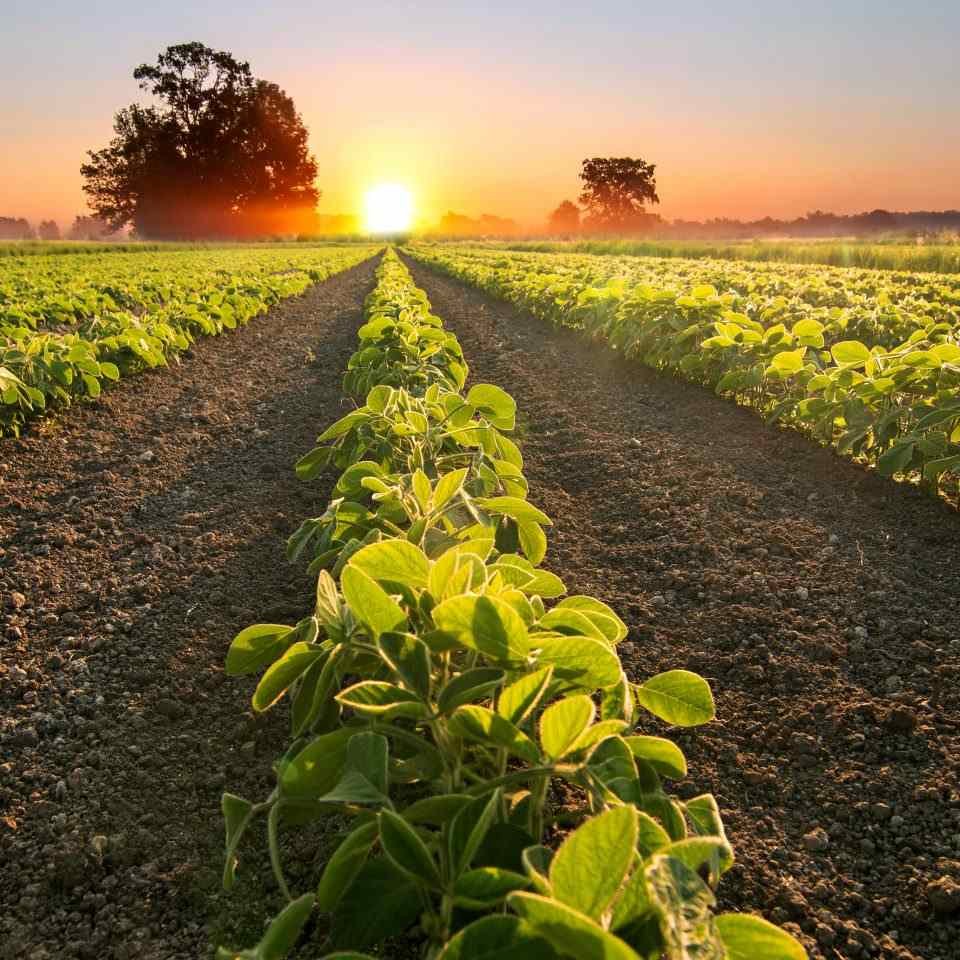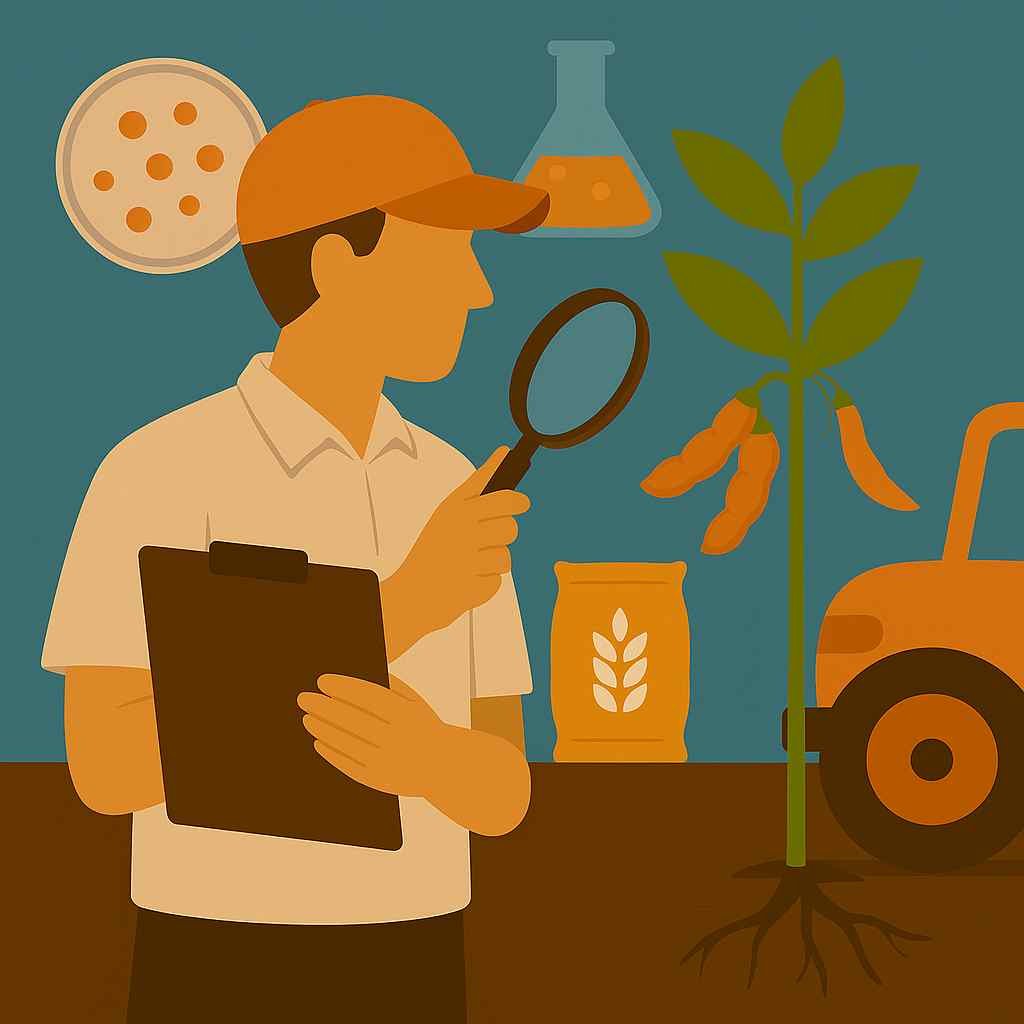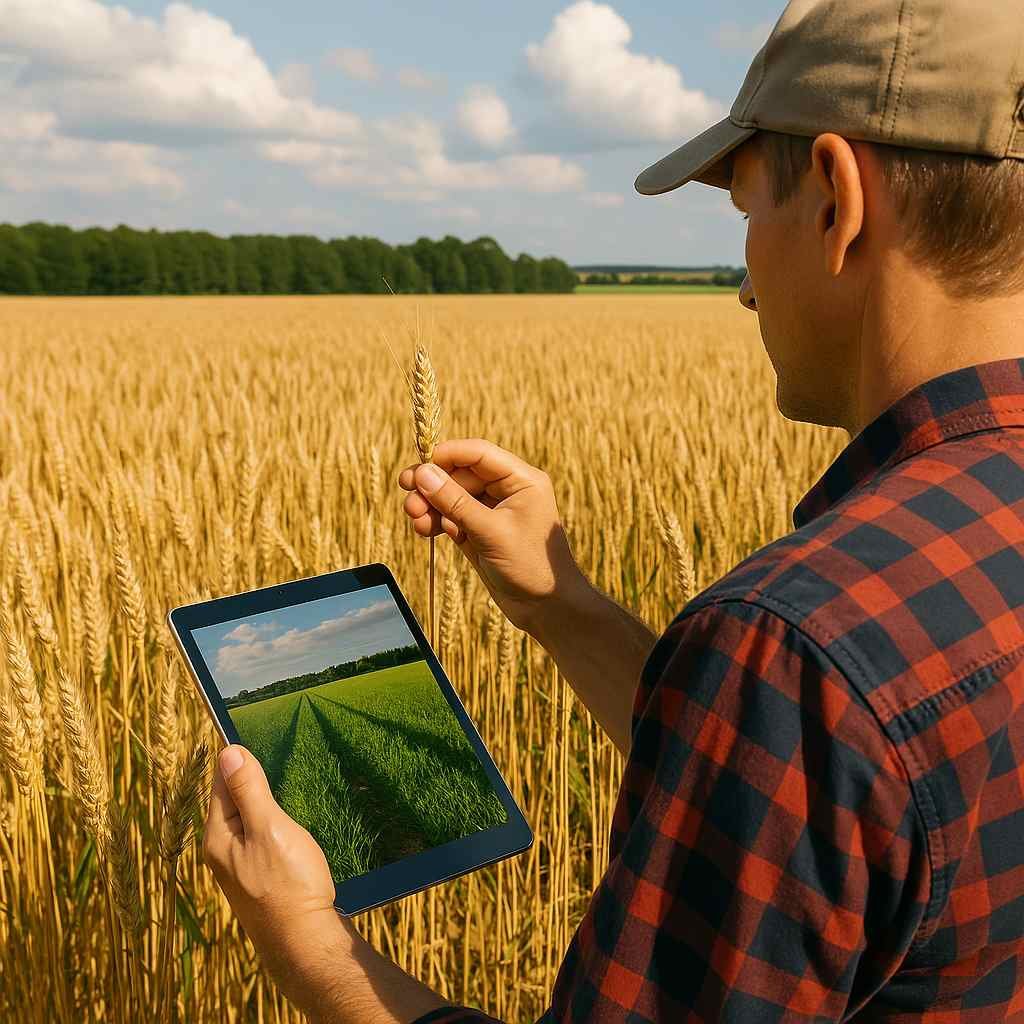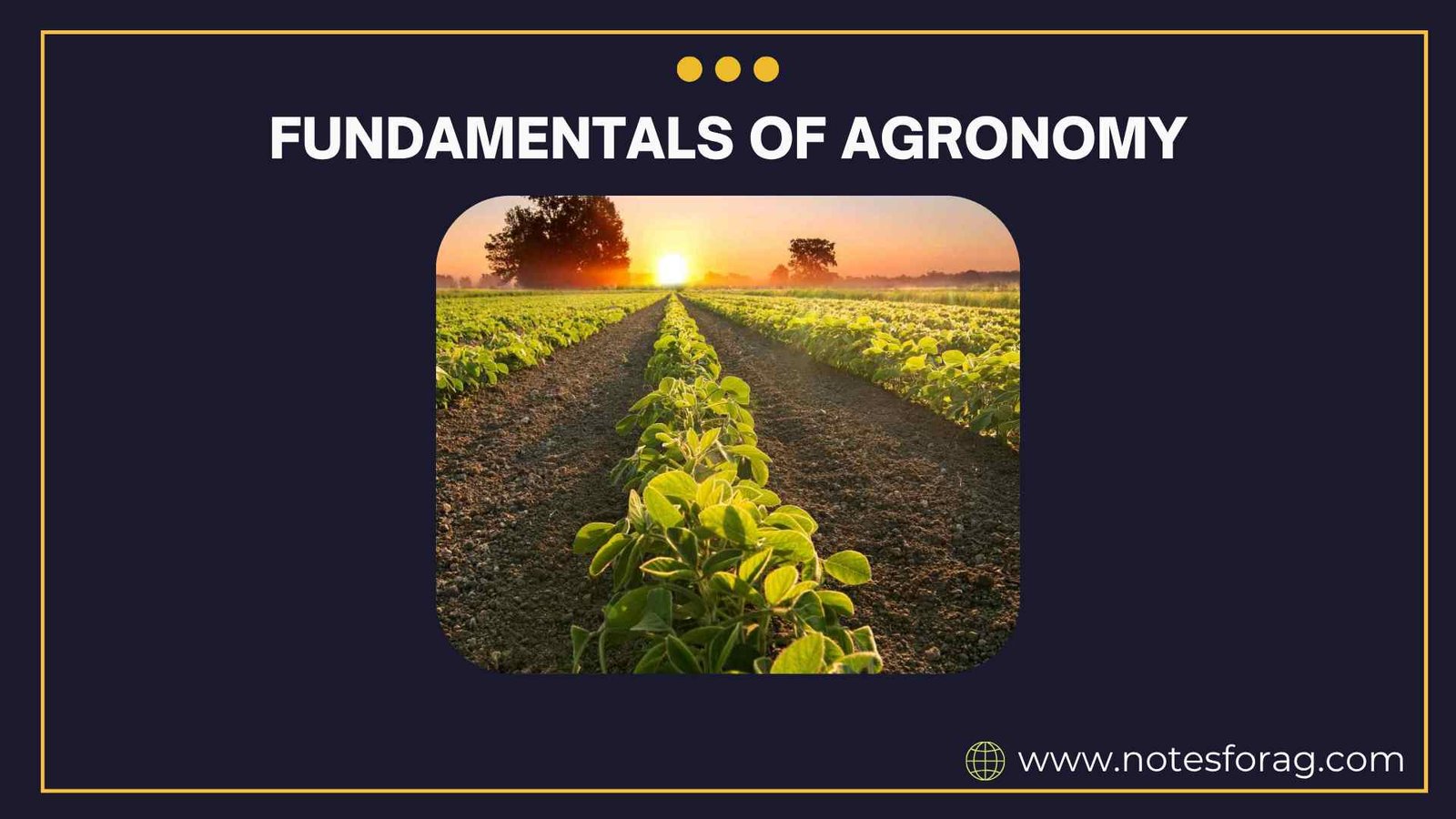What is Agronomy?

Agronomy is the science of growing crops. It helps farmers understand how to produce more food while taking care of the land. Think of agronomy like a guidebook for farming – it tells farmers the best ways to plant seeds, care for crops, and harvest food.
This science is very important because it helps solve big problems. With more people in the world, we need to grow more food. But we also need to protect our soil and water. Agronomy helps farmers do both – grow more food while keeping nature healthy.
Summary of Agronomy
- Agronomy combines traditional farming knowledge with modern technology to optimize food production and sustainability.
- Innovations like soil sensors, drones, and urban farming help farmers grow more food with fewer resources while protecting the environment.
- With ongoing agronomic research, humanity can ensure food security while maintaining ecological balance for future generations.
Table of Contents
Why Do We Need Agronomy?
We need agronomy because farming is not as simple as just putting seeds in the ground. Many things affect how crops grow:
The type of soil matters – some soils are good for certain crops but bad for others. The amount of rain matters – too little water and crops dry up, too much water and they can rot. The temperature matters – some crops like heat while others prefer cooler weather.
Agronomy studies all these things to help farmers make good decisions. It helps answer questions like:
- What crop will grow best in this field?
- When is the best time to plant?
- How much water do the crops need?
- What can we do if pests attack the crops?
Without agronomy, farmers would have to guess about these things. With agronomy, they can make smart choices based on science.
What Do Agronomists Do?

Agronomists are scientists who study farming. They work in many different places:
Some work in fields with farmers, helping them solve problems. They might test the soil to see what nutrients it needs. They might examine sick plants to figure out what’s wrong.
Some work in laboratories developing new types of seeds. These might be seeds that can grow with less water, or seeds that can resist diseases better.
Some work for companies that make farming products like fertilizers or tractors. They help create better tools and products for farmers.
Some work for the government, making rules about farming that protect the environment while helping farmers grow food.
All agronomists share the same goal – to help produce more and better food in ways that don’t harm our planet.
Basic Farming Science
Agronomy has discovered some important rules for good farming:
Soil Care
Healthy soil grows healthy crops. Agronomy teaches farmers how to keep soil full of nutrients by rotating crops (growing different plants each season) and adding natural materials like compost.
Water Wisdom
Plants need just the right amount of water. Agronomy helps farmers use water carefully through systems like drip irrigation that deliver water directly to plant roots without wasting any.
Pest Control
Instead of using lots of chemicals, agronomy finds natural ways to fight pests. This might mean bringing in helpful insects that eat the harmful ones, or planting certain flowers that keep pests away.
Right Plant, Right Place
Not all crops grow well everywhere. Agronomy helps match each crop to the best location based on soil type, rainfall, and temperature.
Modern Farming Innovations
Agronomy has revolutionized farming, introducing cutting-edge tools and techniques that help farmers increase productivity while conserving resources. From advanced monitoring systems to climate-smart practices, modern agriculture is evolving rapidly.
Technological Advancements in Farming
Aerial Monitoring with Drones and Small Airplanes
Farmers now use drones and small airplanes equipped with cameras and sensors to survey their fields. These aerial images provide critical data about soil moisture levels, plant health, and pest infestations. By identifying problem areas early, farmers can apply water, fertilizer, or pesticides with precision, reducing waste and optimizing crop yield.
Soil Sensors for Efficient Water Use
Advanced soil sensors help farmers measure moisture levels deep within the soil. This data allows them to irrigate crops only when necessary, preventing overwatering and conserving water resources. Precision irrigation systems, such as drip irrigation, complement these sensors by delivering water directly to plant roots, minimizing evaporation losses.
Weather Prediction and Data-Driven Decisions
Farmers rely on sophisticated computer models that analyze historical weather patterns and real-time meteorological data. These programs predict rainfall, temperature fluctuations, and ideal planting windows, helping farmers avoid risks like drought or unexpected frosts. Data-driven farming ensures timely planting and harvesting, maximizing productivity.
Sustainable Farming and the Future of Agriculture
Developing Drought-Resistant Crops
Climate change has led to unpredictable rainfall and prolonged dry periods in many regions. Scientists are developing genetically modified and selectively bred crops that require less water, enabling farmers to maintain stable food production even in arid conditions. These resilient crops help secure food supply despite environmental challenges.
Carbon Sequestration in Farming Practices
Agricultural innovations are not only improving food production but also helping combat climate change. Certain farming methods, like cover cropping and no-till farming, enhance soil’s ability to store carbon. By increasing organic matter in the soil, farmers contribute to reducing atmospheric carbon dioxide levels, playing a key role in environmental sustainability.
Urban Farming and Vertical Agriculture
With growing populations and shrinking farmland, urban farming has emerged as a solution to food scarcity. Vertical farms, which use stacked layers of crops in controlled environments, maximize space efficiency and enable year-round production. Hydroponic and aeroponic systems eliminate the need for soil while providing optimal nutrient delivery, ensuring high-quality produce for urban communities.
The Role of Agronomy in Global Food Security

Agronomy research continues to shape the future of agriculture, making food production more efficient, sustainable, and adaptable. As scientists develop smarter tools and climate-resilient crops, farming practices are evolving to meet the demands of a changing world. With technological advancements and sustainable innovations, agriculture is poised to support future generations while safeguarding natural resources.
Conclusion
Agronomy is more than just farming; it is a science that ensures food production is efficient, sustainable, and adaptable to global challenges. As the world’s population continues to grow, agronomy plays a crucial role in balancing food security with environmental conservation. Through groundbreaking technologies and research, agronomists help farmers overcome unpredictable weather, soil degradation, and pest infestations while optimizing yields.
Modern innovations, such as drones, soil sensors, and data-driven farming techniques, enable precision agriculture, reducing waste and maximizing productivity. Additionally, sustainable practices like carbon sequestration, drought-resistant crops, and urban farming further enhance agricultural resilience. These developments not only support farmers but also contribute to environmental sustainability by reducing water consumption, preventing soil erosion, and cutting greenhouse gas emissions.
Agronomy is the bridge between tradition and technology, integrating centuries-old farming wisdom with cutting-edge advancements. As climate change continues to alter agricultural landscapes, the need for innovative farming solutions becomes more pressing. Governments, researchers, and farmers must collaborate to refine agronomic practices, ensuring that future generations inherit a food-secure world without compromising natural resources.
Ultimately, agronomy is the foundation of a thriving agricultural sector that feeds billions while safeguarding our planet. By investing in agronomic research and implementing its findings, humanity can achieve a balance between production and preservation, guaranteeing nourishment for future generations. The future of farming relies on agronomy’s ability to harmonize science, sustainability, and technology.
Frequently Asked Questions (FAQs)
What are common plant diseases in 2025?
Key diseases to watch in 2025 include:
Apple and pear scab (causes leaf spots and fruit damage)
Powdery mildew (white fungal growth on leaves)
Bacterial canker (kills stone fruit trees like cherries)
Tomato blight (rapid leaf death)
What is Agronomy?
Agronomy is the science of soil management and crop production. It focuses on improving farming methods to grow food efficiently while protecting the environment. Agronomists study soil health, water use, and plant genetics to help farmers produce better yields.
How do I diagnose plant diseases?
Follow these steps:
Identify the plant (some diseases only affect specific species).
Check symptoms (e.g., yellow leaves, spots, or wilting).
Look for signs (like fungal spores or insects).
Test soil or lab samples for pathogens if needed.
Related Articles

